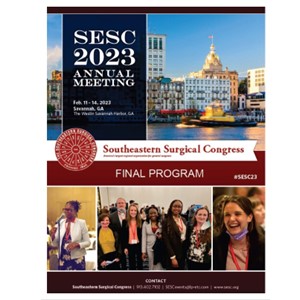Back
Critical Care
Category: Quickshot Oral Session 18
Quickshot Oral : Quickshot Oral Session 18
CLINICAL VALIDATION OF A RIB FRACTURES DISPOSITION PROTOCOL USING THE TRAUMA QUALITY IMPROVEMENT PROGRAM (TQIP) DATABASE.
Monday, February 13, 2023
7:00am – 8:00am East Coast USA Time
- SG
Selim Gebran, MD
United States
- SG
Selim Gebran, MD
United States
Presenter(s)
Principal Contact(s)
Objectives: Patients with traumatic rib fractures are prone to respiratory decompensation. The triage to appropriate monitoring level could influence overall outcomes.
Methods: Adult patients in the TQIP (2018-2019) with a diagnosis of rib fracture(s) were included while excluding patients with severe extrathoracic injuries. Based on the triage algorithm proposed by a systematic review of the literature, patients were grouped into whether they needed ICU or inpatient floor management. Analysis of outcomes of under-triage vs appropriate triage was performed using univariable/multivariable analyses and sensitivity/specificity ROC analysis.
Results: In total, 132,391 patients were included. After evaluation in the emergency room, 32.8% were admitted to the ICU, 62.5% to an inpatient floor, and 4.7% to observation. Of patients admitted to the floor 17.6% met ICU criteria. Patients admitted to the floor more often developed pulmonary complications when they met ICU criteria on admission vs when they did not (5.8% vs 1.9%, p< 0.001). After adjusting for age, injury severity score and operative fracture management, the odds ratio for pulmonary complications was 2.54 (95% C.I. [2.28-2.83]) in ICU under-triage with a high discriminatory accuracy of the model (ROC-AUC=0.703). Similarly overall complications and prolonged length of stay were significantly more likely in floor patients who met ICU criteria. These findings, were not replicated in under-triage to observation.
Conclusion: Under-triage of traumatic rib fracture patients meeting ICU criteria was associated with worse in-hospital pulmonary and overall outcomes. Adherence to the standardized admission criteria we examined may improve clinical outcomes.
Methods: Adult patients in the TQIP (2018-2019) with a diagnosis of rib fracture(s) were included while excluding patients with severe extrathoracic injuries. Based on the triage algorithm proposed by a systematic review of the literature, patients were grouped into whether they needed ICU or inpatient floor management. Analysis of outcomes of under-triage vs appropriate triage was performed using univariable/multivariable analyses and sensitivity/specificity ROC analysis.
Results: In total, 132,391 patients were included. After evaluation in the emergency room, 32.8% were admitted to the ICU, 62.5% to an inpatient floor, and 4.7% to observation. Of patients admitted to the floor 17.6% met ICU criteria. Patients admitted to the floor more often developed pulmonary complications when they met ICU criteria on admission vs when they did not (5.8% vs 1.9%, p< 0.001). After adjusting for age, injury severity score and operative fracture management, the odds ratio for pulmonary complications was 2.54 (95% C.I. [2.28-2.83]) in ICU under-triage with a high discriminatory accuracy of the model (ROC-AUC=0.703). Similarly overall complications and prolonged length of stay were significantly more likely in floor patients who met ICU criteria. These findings, were not replicated in under-triage to observation.
Conclusion: Under-triage of traumatic rib fracture patients meeting ICU criteria was associated with worse in-hospital pulmonary and overall outcomes. Adherence to the standardized admission criteria we examined may improve clinical outcomes.

